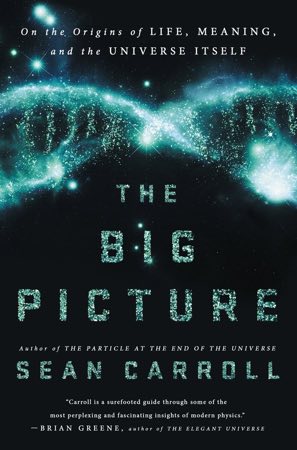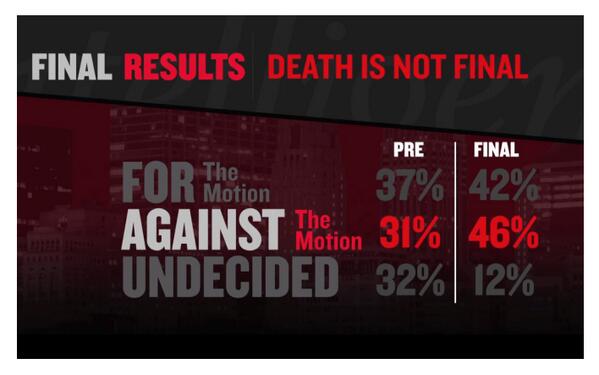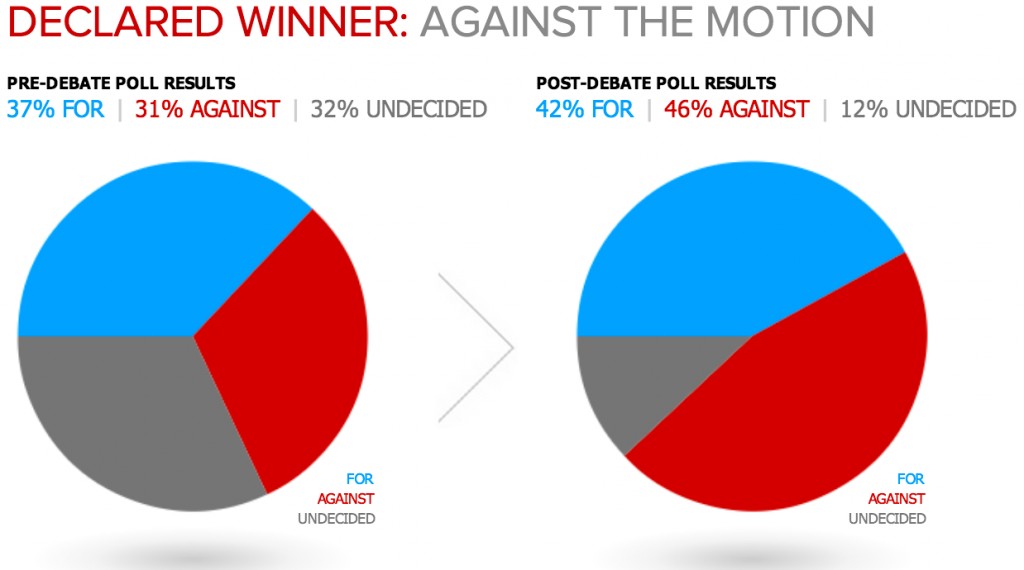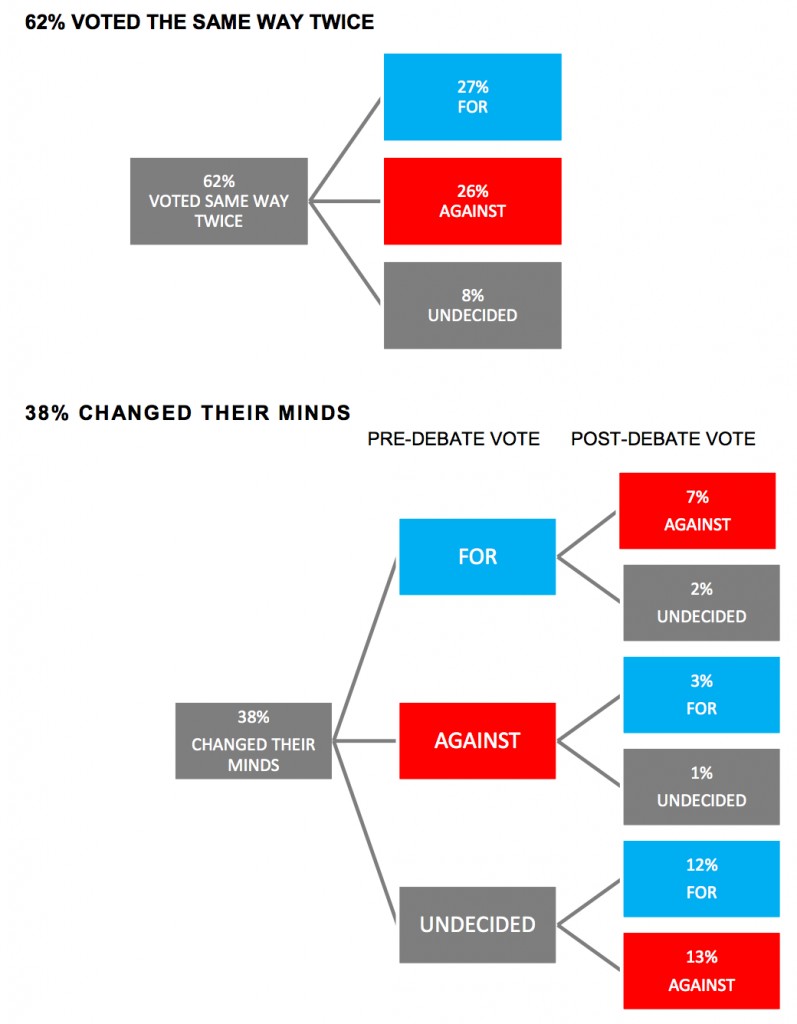
Don Page is one of the world’s leading experts on theoretical gravitational physics and cosmology, as well as a previous guest-blogger around these parts. (There are more world experts in theoretical physics than there are people who have guest-blogged for me, so the latter category is arguably a greater honor.) He is also, somewhat unusually among cosmologists, an Evangelical Christian, and interested in the relationship between cosmology and religious belief.
Longtime readers may have noticed that I’m not very religious myself. But I’m always willing to engage with people with whom I disagree, if the conversation is substantive and proceeds in good faith. I may disagree with Don, but I’m always interested in what he has to say.
Recently Don watched the debate I had with William Lane Craig on “God and Cosmology.” I think these remarks from a devoted Christian who understands the cosmology very well will be of interest to people on either side of the debate.
Open letter to Sean Carroll and William Lane Craig:
I just ran across your debate at the 2014 Greer-Heard Forum, and greatly enjoyed listening to it. Since my own views are often a combination of one or the others of yours (though they also often differ from both of yours), I thought I would give some comments.
I tend to be skeptical of philosophical arguments for the existence of God, since I do not believe there are any that start with assumptions universally accepted. My own attempt at what I call the Optimal Argument for God (one, two, three, four), certainly makes assumptions that only a small fraction of people, and perhaps even only a small fraction of theists, believe in, such as my assumption that the world is the best possible. You know that well, Sean, from my provocative seminar at Caltech in November on “Cosmological Ontology and Epistemology” that included this argument at the end.
I mainly think philosophical arguments might be useful for motivating someone to think about theism in a new way and perhaps raise the prior probability someone might assign to theism. I do think that if one assigns theism not too low a prior probability, the historical evidence for the life, teachings, death, and resurrection of Jesus can lead to a posterior probability for theism (and for Jesus being the Son of God) being quite high. But if one thinks a priori that theism is extremely improbable, then the historical evidence for the Resurrection would be discounted and not lead to a high posterior probability for theism.
I tend to favor a Bayesian approach in which one assigns prior probabilities based on simplicity and then weights these by the likelihoods (the probabilities that different theories assign to our observations) to get, when the product is normalized by dividing by the sum of the products for all theories, the posterior probabilities for the theories. Of course, this is an idealized approach, since we don’t yet have _any_ plausible complete theory for the universe to calculate the conditional probability, given the theory, of any realistic observation.
For me, when I consider evidence from cosmology and physics, I find it remarkable that it seems consistent with all we know that the ultimate theory might be extremely simple and yet lead to sentient experiences such as ours. A Bayesian analysis with Occam’s razor to assign simpler theories higher prior probabilities would favor simpler theories, but the observations we do make preclude the simplest possible theories (such as the theory that nothing concrete exists, or the theory that all logically possible sentient experiences occur with equal probability, which would presumably make ours have zero probability in this theory if there are indeed an infinite number of logically possible sentient experiences). So it seems mysterious why the best theory of the universe (which we don’t have yet) may be extremely simple but yet not maximally simple. I don’t see that naturalism would explain this, though it could well accept it as a brute fact.
One might think that adding the hypothesis that the world (all that exists) includes God would make the theory for the entire world more complex, but it is not obvious that is the case, since it might be that God is even simpler than the universe, so that one would get a simpler explanation starting with God than starting with just the universe. But I agree with your point, Sean, that theism is not very well defined, since for a complete theory of a world that includes God, one would need to specify the nature of God.
For example, I have postulated that God loves mathematical elegance, as well as loving to create sentient beings, so something like this might explain both why the laws of physics, and the quantum state of the universe, and the rules for getting from those to the probabilities of observations, seem much simpler than they might have been, and why there are sentient experiences with a rather high degree of order. However, I admit there is a lot of logically possible variation on what God’s nature could be, so that it seems to me that at least we humans have to take that nature as a brute fact, analogous to the way naturalists would have to take the laws of physics and other aspects of the natural universe as brute facts. I don’t think either theism or naturalism solves this problem, so it seems to me rather a matter of faith which makes more progress toward solving it. That is, theism per se cannot deduce from purely a priori reasoning the full nature of God (e.g., when would He prefer to maintain elegant laws of physics, and when would He prefer to cure someone from cancer in a truly miraculous way that changes the laws of physics), and naturalism per se cannot deduce from purely a priori reasoning the full nature of the universe (e.g., what are the dynamical laws of physics, what are the boundary conditions, what are the rules for getting probabilities, etc.).
In view of these beliefs of mine, I am not convinced that most philosophical arguments for the existence of God are very persuasive. In particular, I am highly skeptical of the Kalam Cosmological Argument, which I shall quote here from one of your slides, Bill:
- If the universe began to exist, then there is a transcendent cause
which brought the universe into existence.
- The universe began to exist.
- Therefore, there is a transcendent cause which brought the
universe into existence.
I do not believe that the first premise is metaphysically necessary, and I am also not at all sure that our universe had a beginning. …
Guest Post: Don Page on God and CosmologyRead More »






